Words are more than mere symbols; they are the architects of our reality. Adjectives, in particular, hold immense power in constructing perceptions and injecting color into our conversations.
I hope you enjoy this list of positive words that start with n and an accompanying classroom poster.
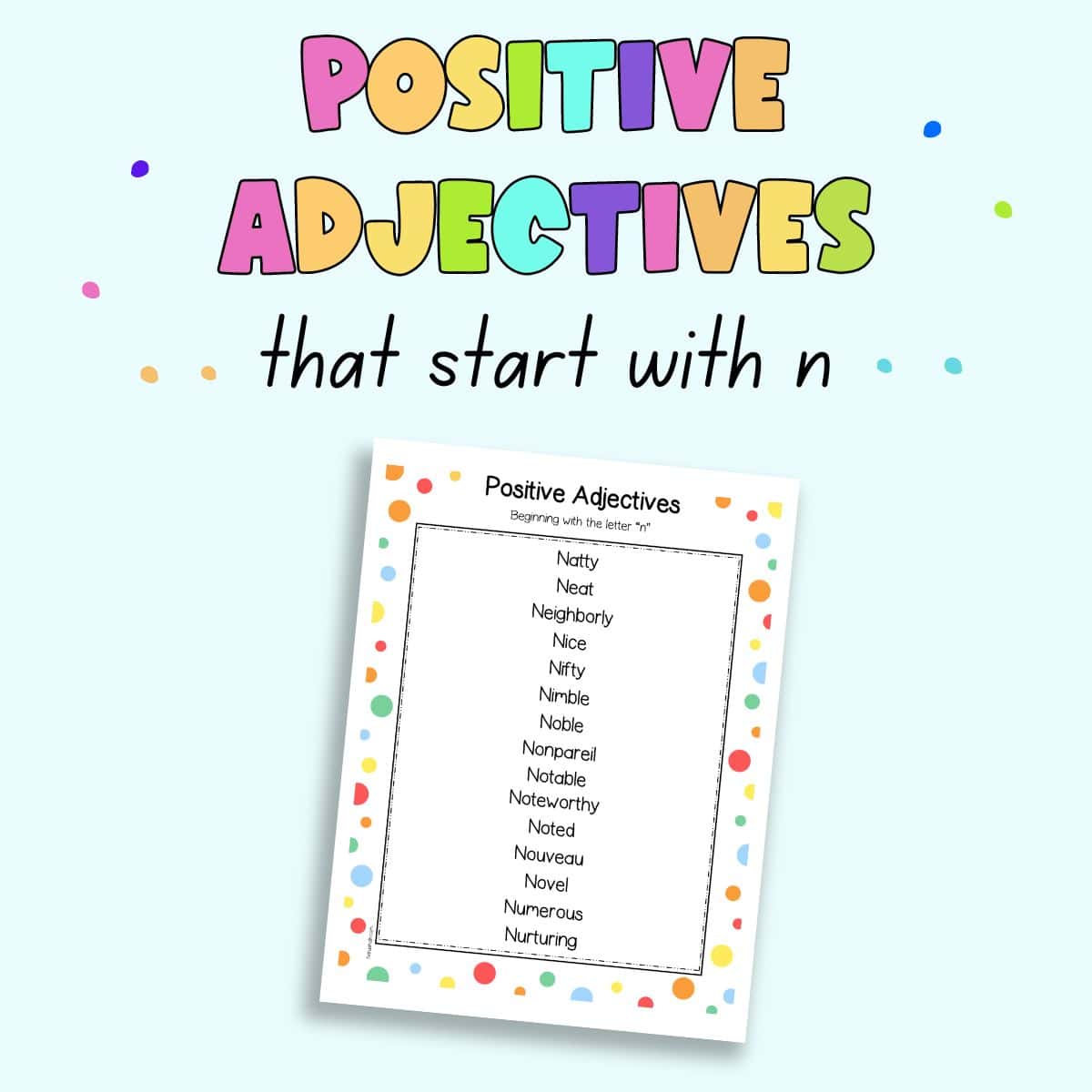
Imagine describing someone not just as 'nice', but as 'noble', 'nurturing', or 'nonpareil'.
Adopting these words in your daily vocabulary does more than just polish your language skills. It fosters a positive mindset, enabling you to seek and acknowledge the good around you.
The routine use of positive and novel n adjectives can spark new neural connections and build vocabulary in with your family and students.
Studying lists of words can help your child or students develop a solid vocabulary that will help prepare them for verbal portions of standardized texts and allow them to read classic literature with ease.
This list of kind words can be a great supplement to this list of positive adjectives to describe a child. It's great for classroom use or homeschool use. Make sure to grab your free printable poster of the best positive adjectives starting with the letter n!
Unlike some other posts with 353 so-called positive n adjectives that are filled with nonsensical fluff and words that could barely be considered positive, this post includes only the best positive words that start with the letter n.
Table of Contents
Most Notable 'N' Adjectives and Their Usages
Let's take a look at a few nifty words starting with the letter n. =)
If you'd like to know more about the history the letter n and suggestions for expanding your vocabulary, keep scrolling past the word list and free poster.
The words are featured in example sentences to demonstrate each word's meaning and usage. Having your students write their own unique sentences with each vocabulary word is a classic way of testing comprehension.
There aren't numerous positive n words, but here are some fun ones. (Sorry, "new," you're not novel or nifty enough to make the list.) Let's look at some of the best words starting with the letter n:
- Natty: You always look natty in your coordinated outfits.
- Nurturing: Your nurturing attitude fosters a sense of warmth and safety among your peers.
- Noble: A noble gesture can uplift someone's spirits and inspire others to act generously.
- Notable: He is known for his notable achievements in art.
- Noteworthy: Sharing your classmates' noteworthy achievements encourages a team-centric attitude.
- Nonpareil: You are nonpareil - you are truly without equal.
- Neighborly: Neighborly interactions make our community a friendlier, more connected place to live.
- Nimble: Being nimble in problem-solving enables you to adapt to new challenges swiftly and efficiently.
- Nifty: A nifty solution streamlines processes, saving time and resources.
- Neat: Keeping your workspace neat enhances your focus and overall productivity.
- Noted: She is a noted expert in her field.
- Novel: Novel ideas spark creativity and drive innovation in the workplace.
- Nice: Just a nice compliment can brighten someone’s day and create a ripple effect of kindness.
- Nouveau: Your nouveau haircut is so flattering.
- Numerous: She received numerous complements from students and teachers who saw her artwork on display.
For a lot of positive adjectives, make sure to stop by this post of positive adjectives to call a person!
Free printable poster of noble words starting with n
Want to help your students find the right words to express themselves? Make sure to grab your free printable poster with the full list of numerous positive words featured in this post.
Laminate it and put it up in your classroom or in your homeschool classroom!
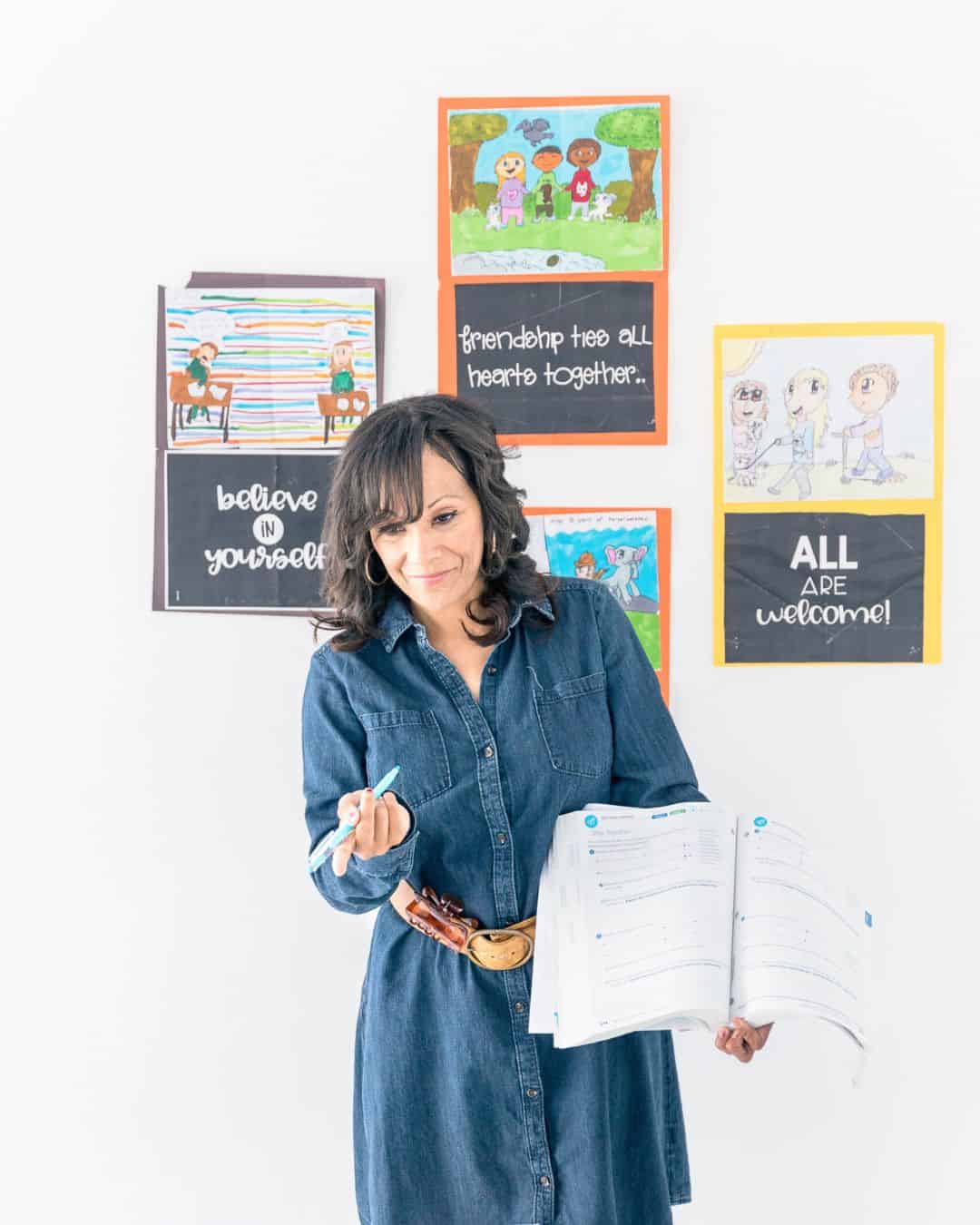
Like other free printables here on The Artisan Life, this poster is licensed for personal use and single classroom use. You are not licensed to sell or redistribute the poster or files to others for sue with their children/students.
The ancient origins of the letter N
Let's start with a bit of history of the letter n. This information is great for English language arts lesson and social studies lessons.
The letter n is one of the most frequently used letters in the English alpahbet. It ranks in the top ten, usually weighing in at around number 6 on lists of the most used letters. This means n has a pretty vital role to play in our language!
This unassuming letter is located near the middle of the English alphabet, but its origins lie in ancient history.
The letter n's roots trace back to ancient Egypt, where the symbol for 'N' resembled a wavy line, depicting water.
The Phoenicians adapted this hieroglyph into a more simplistic form. Their character had a pronounced angle, resembling today’s 'N'. This letter was called "nun," pronounced noon.
The Phoenician alphabet spread throughout the Mediterranean world. The letter n found its way into the Greek alphabet as 'nu', and maintained a similar appearance.
This character was used by the Etruscans and later by the Romans, who refined it into the very 'N' that sits comfortably in the middle of the modern English alphabet.
From the parchments of antiquity to the pixels on our screens, 'N' has steadfastly held its ground.
In contemporary usage, this letter not only shapes sounds but conveys necessity, novelty, and knowledge.
(Okay, so knowledge begins with a k, but it has the n sound and the alliteration sounded so nice.)
Whether in writing about nurturing relationships or narrating tales of noble deeds, 'N' with its nuanced roles, enriches our expressions and lends a hand in making each sentence a piece of history itself.
The Noteworthy 'N'
Let's dive into the world of 'N' adjectives. Many common adjectives can be seen as positive, negative, or neutral, depending on the context. It's always important to take context and conotation into account when reading for comprehension or writing.
In one corner, we've got adjectives naturally brimming with positivity. Words like 'nurturing' and 'noble' pack a wholesome punch all on their own, bringing thoughts of compassion and valor to mind.
There is another set of adjectives that have context-dependent positivity. These chameleons of the English language take on a sunny disposition within the right sentence structure. 'Novel', for example, pivots from simply new to refreshingly innovative when paired with the words "ideas" or "solutions."
Imagine applying these descriptive gems in daily interactions; they transform ordinary conversations into exchanges full of optimism. A 'nimble' mind suggests quick, adept thinking, conjuring a picture of intellectual agility. Meanwhile, 'notable' achievements rise above the ordinary, marking themselves as particularly worthy of attention and praise.
Some words, such as "nouveau" can have a negative connotation or a positive connotation, depending on the sorts of situations it is used in.
And, of course, any of these words can be used sarcastically. Recognizing sarcasm in a text can be a challenging exercise for students!
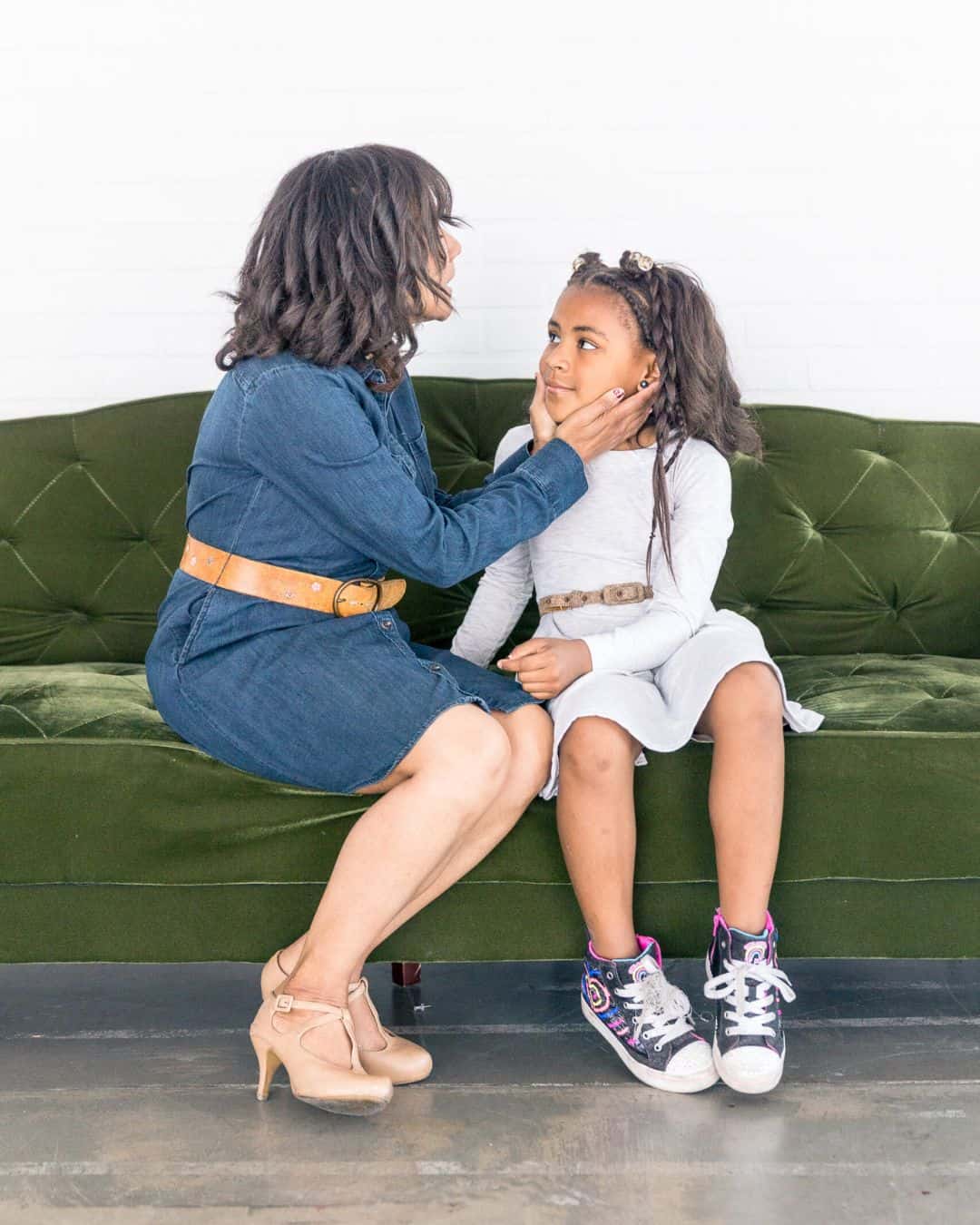
Expanding Horizons: Broadening Your Vocabulary
Do you aspire to have a more elevated vocabulary? Maybe you're studying for the SAT or GRE, or maybe you're interesting in creative writing. Here are a few suggestions for ways to broaden your vocabulary so you can spruce up your mundane phrases.
- Identify Your Common Vocabulary: Start by observing the adjectives you frequently use. Make a list and note the ones with a negative slant. This awareness will set the stage for positive change.
- Seek Out 'N' Adjectives: Actively search for positive 'N' words. Use dictionaries, thesauruses, and online resources to gather words that resonate with you and have affirmative meanings.
- Practice with Writing: Incorporate these 'N' adjectives into your writing first. Journals, emails, or social media posts are good places to begin. This allows you to get comfortable with their usage before speaking them out loud.
- Conversational Substitution: Challenge yourself to replace commonly used words with positive 'N' words in conversations. This intentional practice helps reinforce their place in your vocabulary.
- Read and Listen to Good Examples: Pay attention to speakers and authors who use a rich vocabulary of positive words. Noting their word choices will inspire and educate you on how to use these words effectively yourself.
- Set Daily Goals: Aim to use a specific 'N' adjective each day. This goal-oriented approach ensures regular practice and helps the words stick in your memory.
- Ask for Feedback: Engage friends or family members by asking them to point out when you use a particularly positive or impactful word. This reinforcement from others can build confidence in your word choices.
- Reflect on Your Progress: Take time at the end of each week to reflect on your use of positive adjectives starting with 'N'. Adjust your strategy as needed to continue improving your vocabulary.
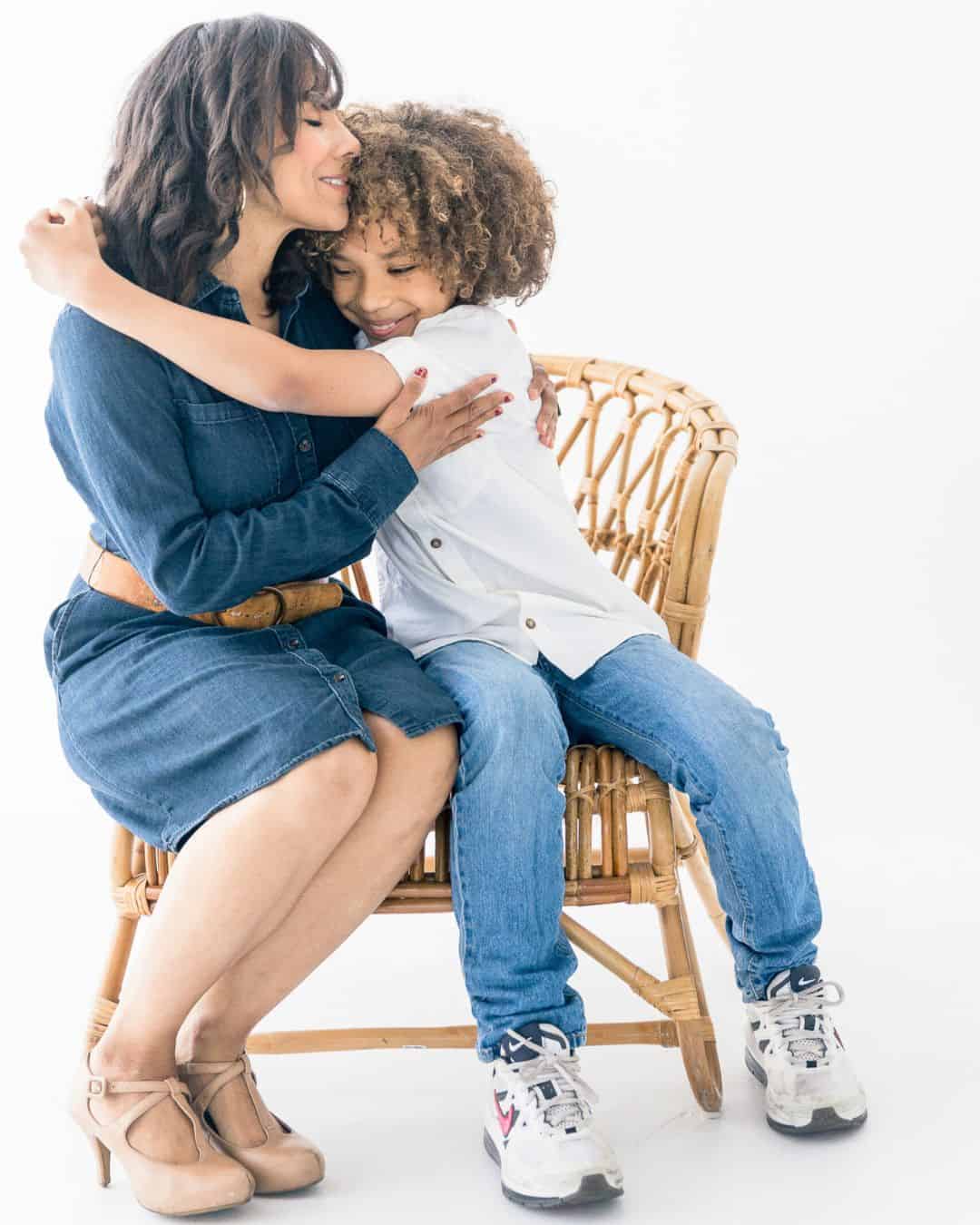
How to Use Words for a Positive Impact
Imagine complimenting a friend by describing their outfit as 'nice'. Now picture the impact of calling it 'nifty' instead. This simple tweak turns a common compliment into a remark that sparkles with originality. (That dress with pockets? It's definitely nifty and not merely nice!)
In the workplace, instead than labeling a proposal as simply 'good', why not say it's 'noteworthy'?
Consider your daily interactions and how they can bloom with the addition of new and novel 'N' adjectives. A simple morning greeting to a neighbor becomes more engaging when you wish them a 'nourishing' day. It goes beyond the basics, expressing a desire for their well-being and good fortune.
When writing holiday cards, instead of the standard 'Happy Holidays', opting for a 'novel' holiday season wishes adds an element of uniqueness, inspiring thoughts of new experiences and joy.
Let's not overlook personal affirmations. Encourage yourself with phrases like 'I am nimble in my problem-solving' or 'I nurture my passions regularly'.
Affirmations like this can boost your morale. They also promote an inner dialogue that fosters growth and positivity.
Choosing a descriptive and positive adjective can help you focus on positive emotions and could be the start of a happier life for you and your family.
Never underestimate the power of positive words! They can really help you cultivate a positive mindset.The words you think and speak can have a powerful impact on your life.
In closing, consider your vocabulary as a garden that benefits from the regular cultivation of positive words. Each new positive word starting with the letter n you learn is like a seed, capable of growing into a vibrant expression that enriches your language and life.
Keep sowing these seeds, and relish the infinite ways in which they enhance your communication and well-being.
Growth Mindset Resources
Do you want to develop your mindset or help your child develop a growth mindset? You've come to the right place!
35+ Positive Affirmations for Kids
Grab your free printable poster with 35+ positive affirmations for kids!
100+ Positive Adjectives to Describe a Child - With Free Printable Poster!
Discover 100+ positive adjectives to describe a child and download a free poster of positive adjectives.
Growth Mindset Poster Free Printables
Improve your mindset with these free printable growth mindset affirmation cards.


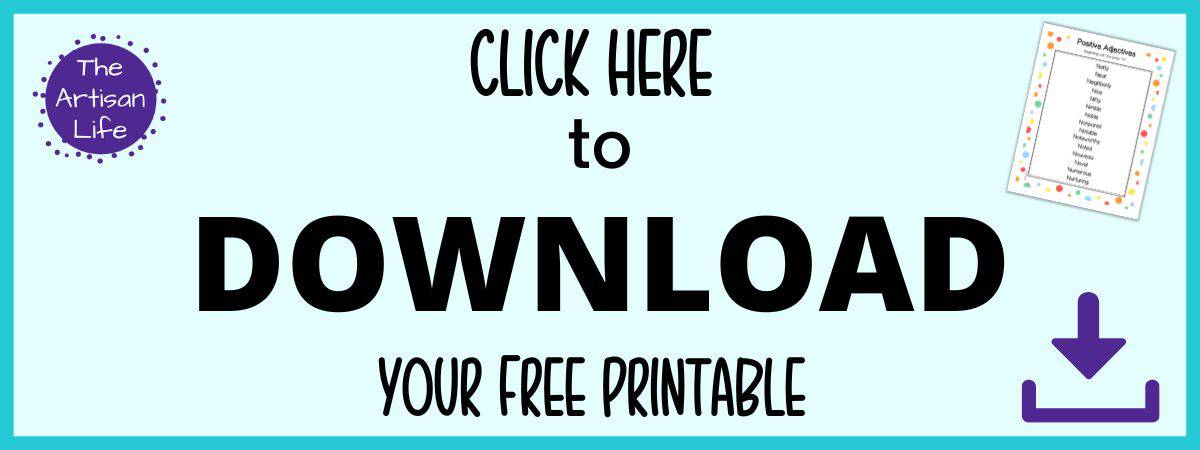

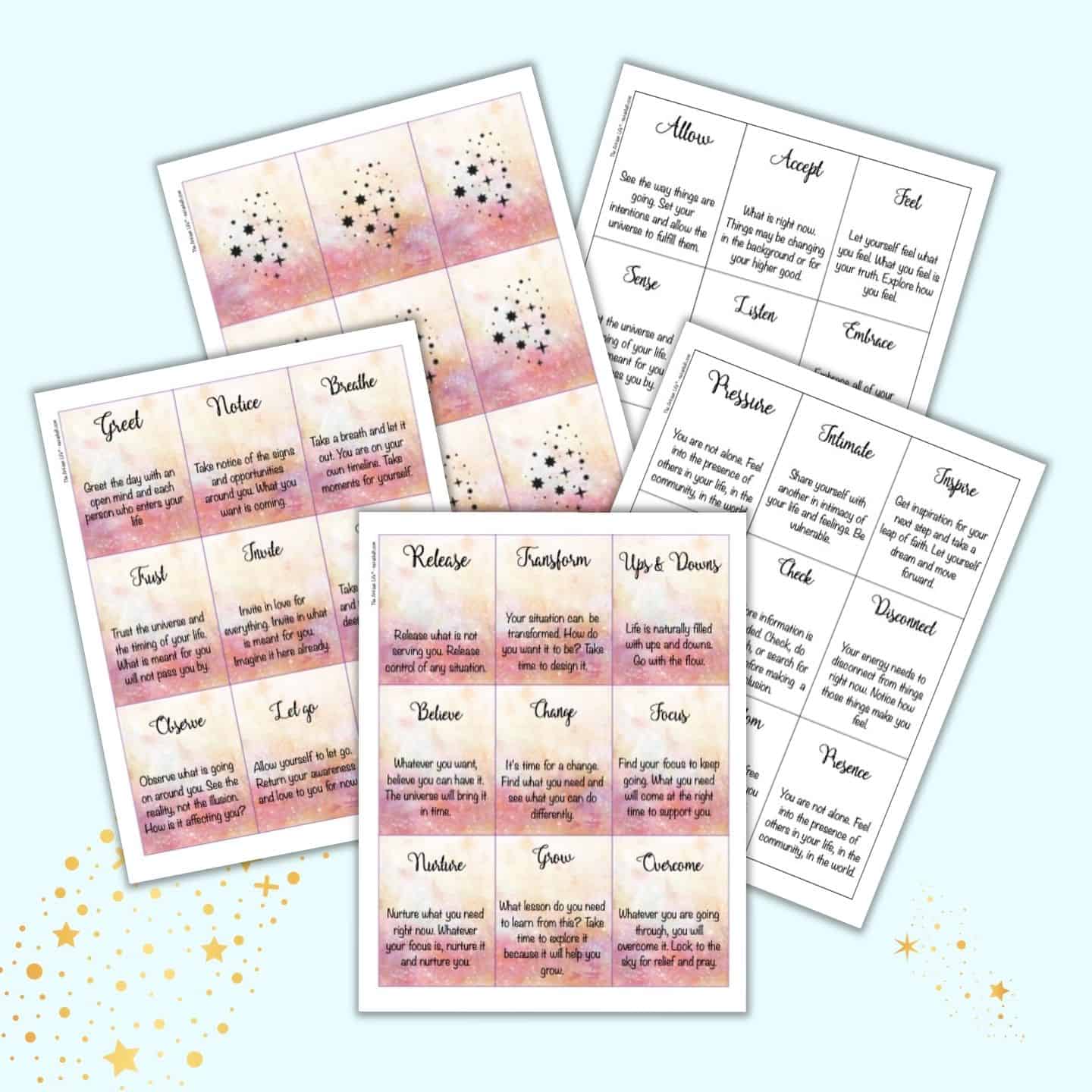
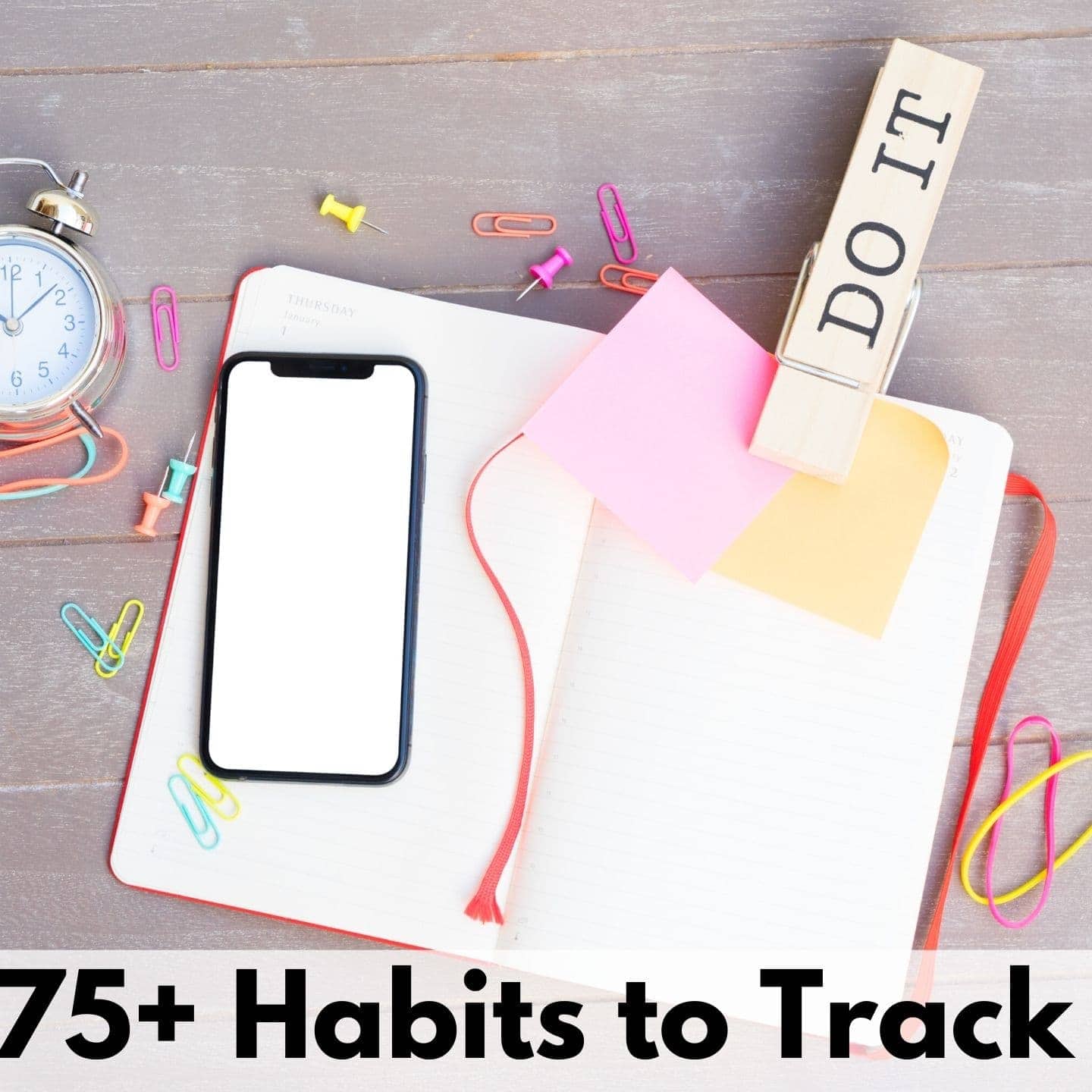
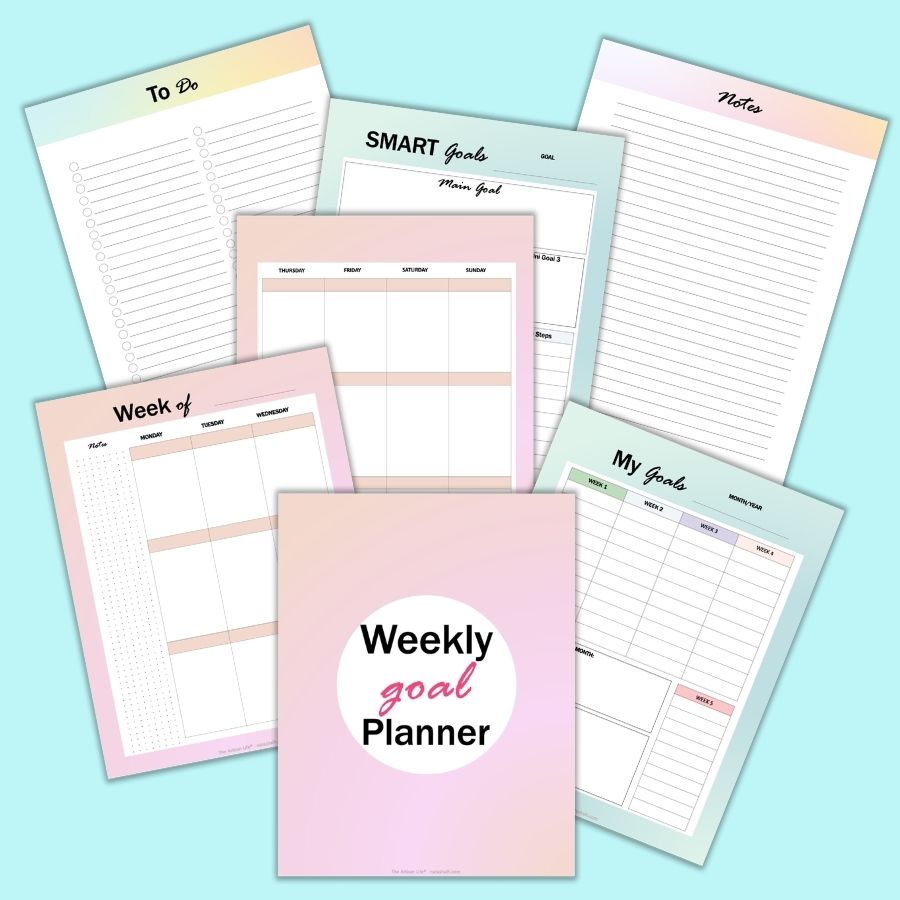
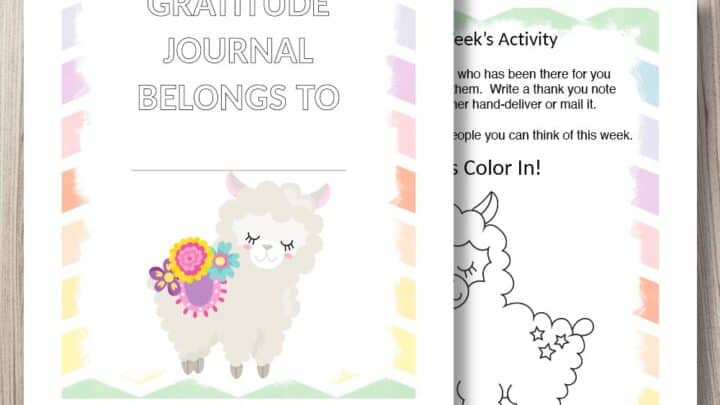


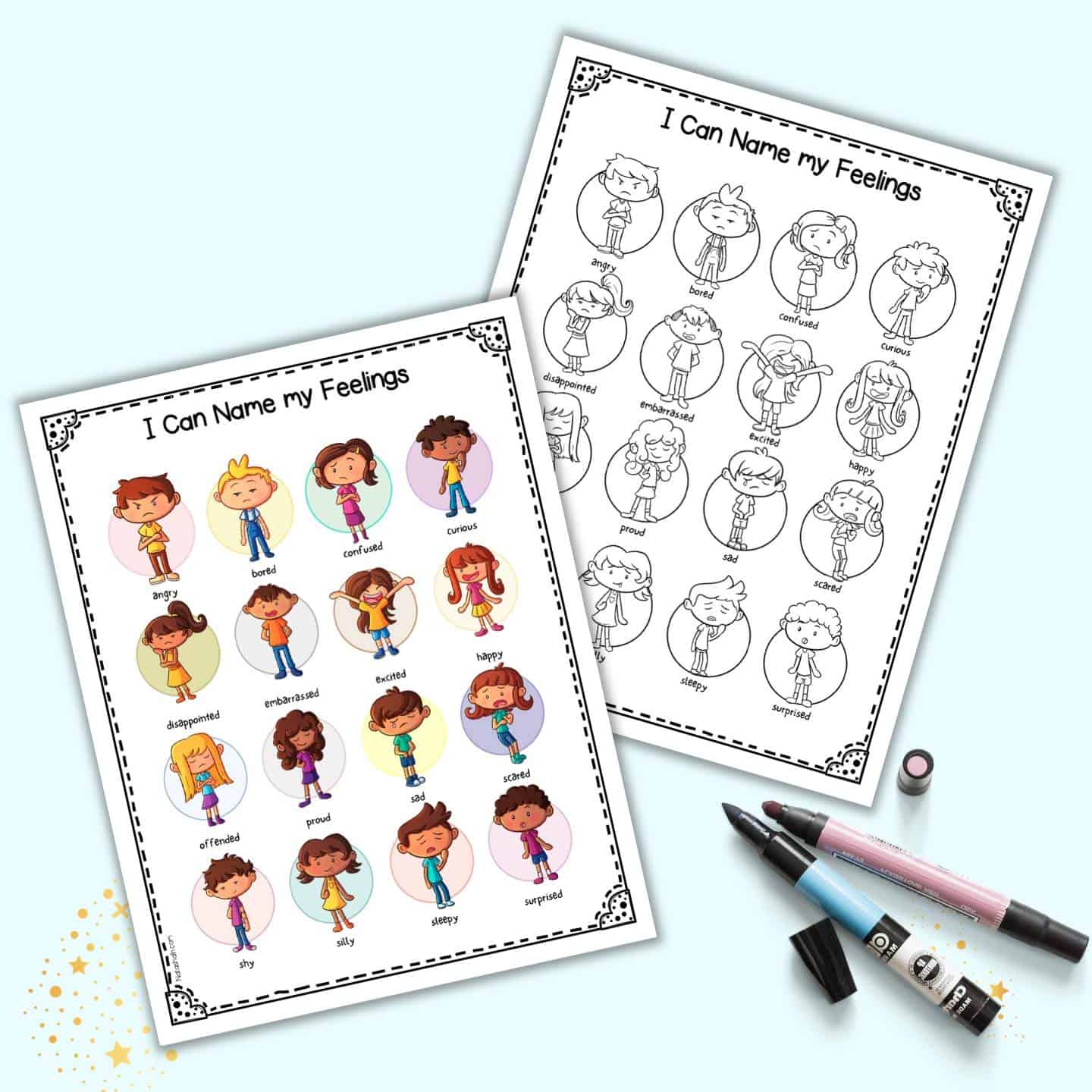
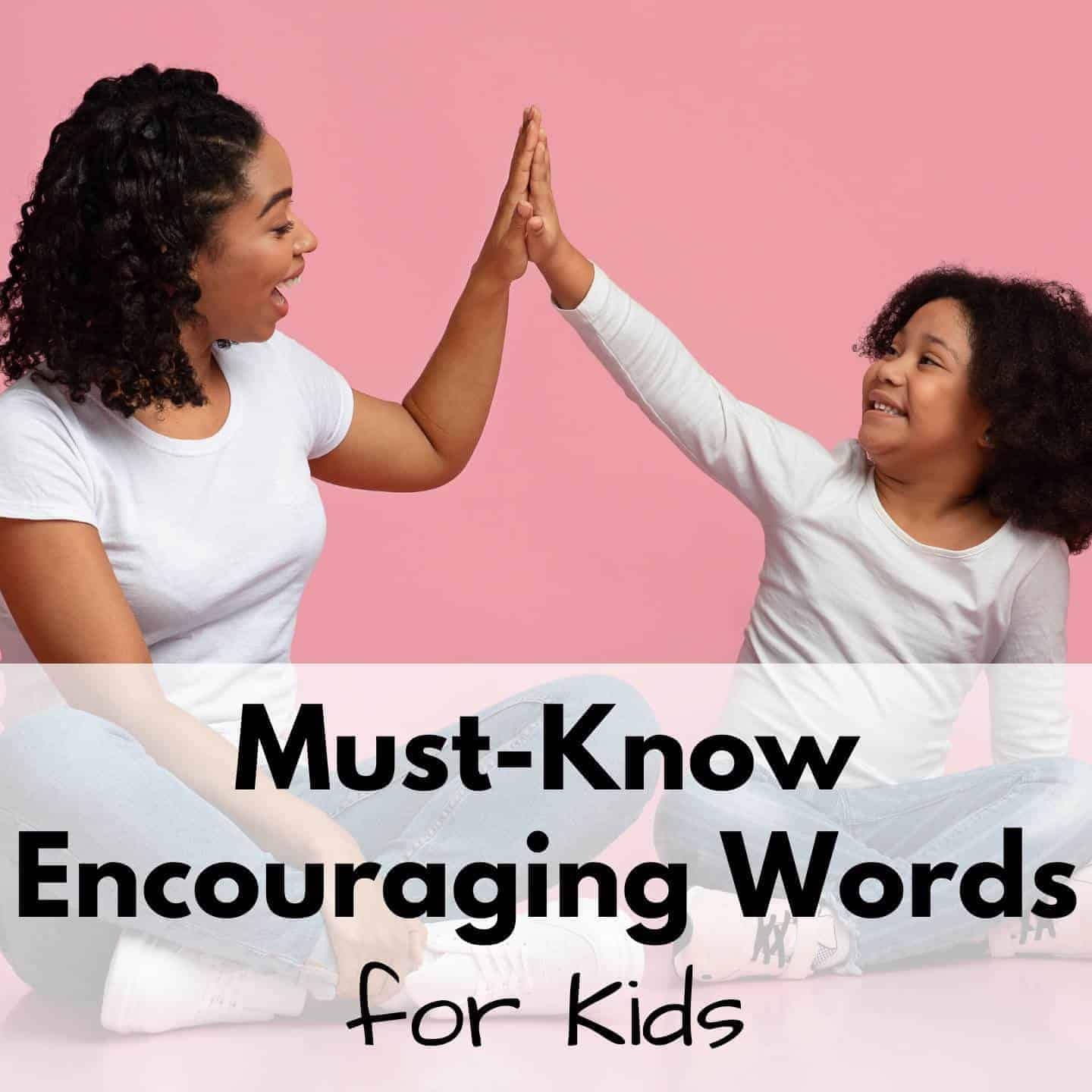
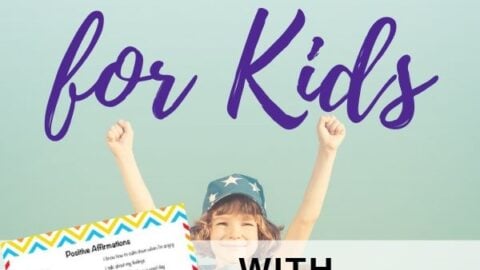
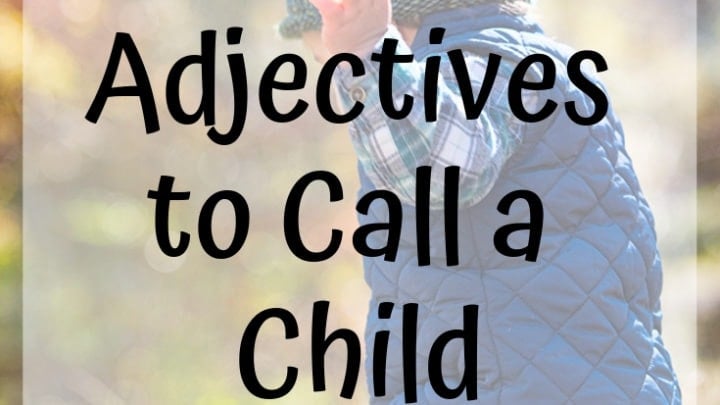
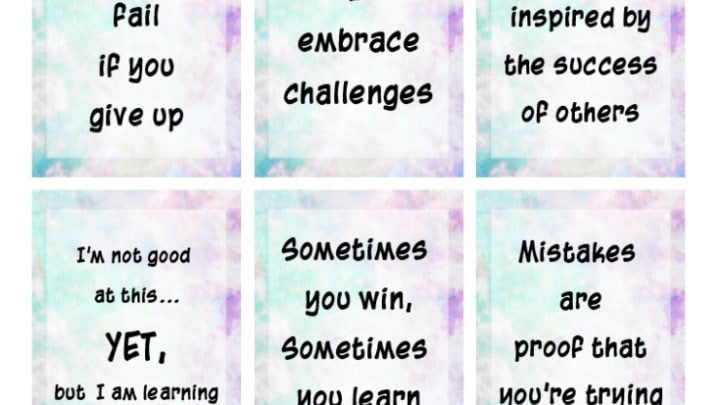
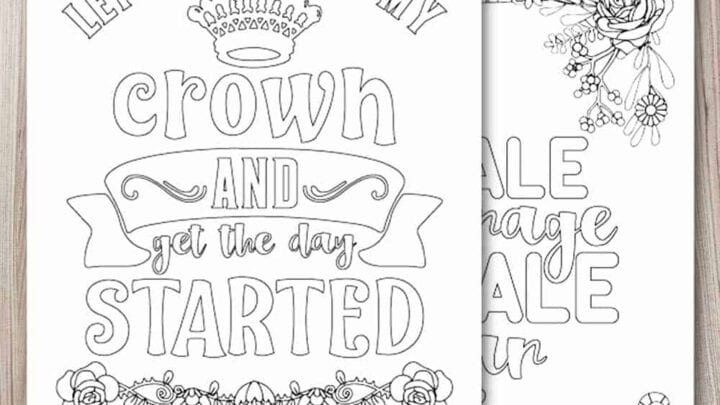
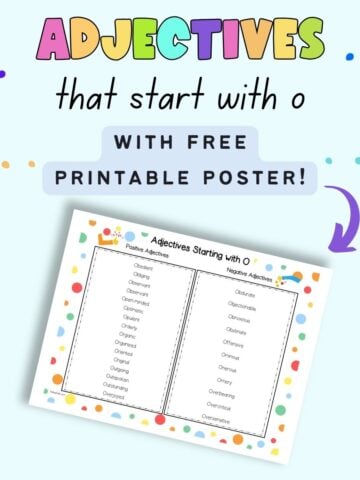
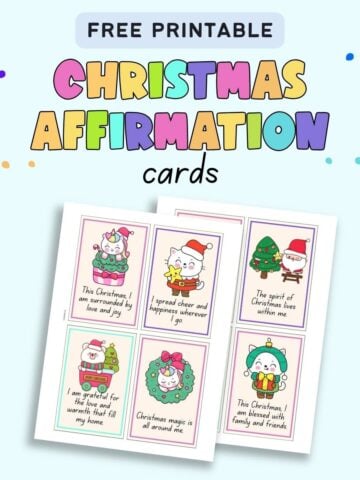
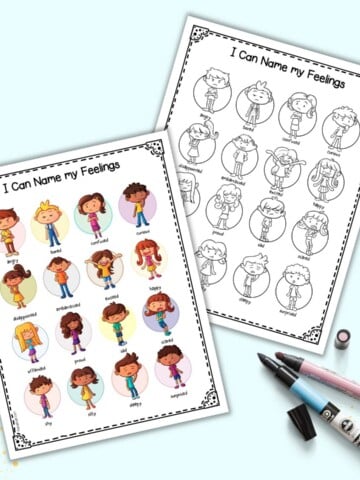
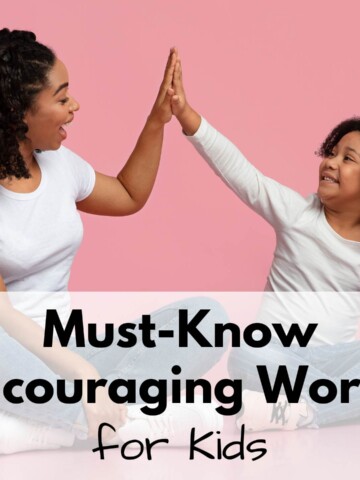
Leave a Reply